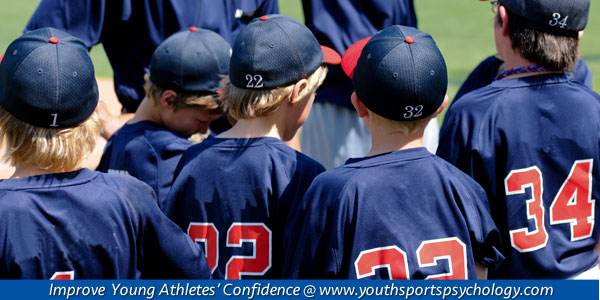Perfectionism In Young Athletes
We recently received a note from a parent about how her 10-year-old’s high expectations lead her to give up when faced with adversity.
This is common when a child, like this softball player, has achieved success. She has pitched many perfect games, including at state playoffs, and is always the best batter on her team, says her mom.
Such success often translates to high expectations and perfectionism—traits that can cause kids to behave exactly like this child does:
“As all the kids get older, better people can hit her pitches and field her hits. At the first sign of adversity she gives up and displays horrifying sportsmanship. We have emphasized countless times it’s about trying your best…”
“I am desperate to help her because she’s holding herself back and making it a miserable experience. My husband wants to make her quit but she loves the game. I’d rather attempt to fix the problem than be punitive! And when she shuts down and stops trying it’s when her team needs her the most,” says the player’s mom.
How can parents help kids whose expectations are so high that they shut down when faced with adversity?
First of all, help these kids understand the problems with their high expectations.
In this case, this player apparently wants to pitch perfect games, as she has in the past. That’s a lot to ask of herself!
She needs to understand that such high expectations can make her feel frustrated and undermine her confidence.
Instead of demanding she be perfect on the mound, players should give themselves a break and understand that everyone is human and makes mistakes.
What’s more, sports kids need to stop focusing so much on statistics, and focus on the here-and-now.
To do that, help them identify mini-goals. These smaller, achievable goals will keep them feel more grounded in the moment.
For example, instead of “I have to have a perfect game today,” they could focus on communicating well with teammates or positioning themselves well on the field.
In addition, parents need to check their own behavior.
Are you fueling your players’ perfectionism?
Do you say things like, “Have another perfect game today!” that contribute to your young athletes’ perfectionism?
If so, you need to lower your own expectations and focus on ensuring your athletes are having fun.
Related Articles on Kids’ Mental Game:
- How to Help Athletes Who Stop Trying or Give Up
- How Participating in Sports Gives Kids an Edge in Life
- How to Help Kids Give 100 Percent, No Matter the Outcome
*Subscribe to The Sports Psychology Podcast on iTunes
*Subscribe to The Sports Psychology Podcast on Spotify
Improve Your Mental Game From Anywhere In The World

We’re certain that, as a parent, you want to help your child develop confidence and discipline in sports and life. And as a sports parent, you’d love for your children to reach their potential in sports. But encouraging your child to strive for greatness without pressuring them can be a challenge.
You can get expert mental coaching with us from anywhere. Meet with us via Zoom, Skype, FaceTime or phone call. With today’s video technology, we are able to connect with athletes and coaches all over the globe.
Call Us Today to Schedule Your Free 15-Minute Session.
Find Out How Your Athlete Can Benefit From One-on-One Mental Coaching!

